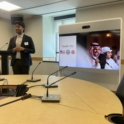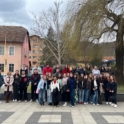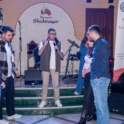Abdulaziz reflects on the highlights from serving as a mentor for CEW.
STORIES
ALAM Entrepreneurs
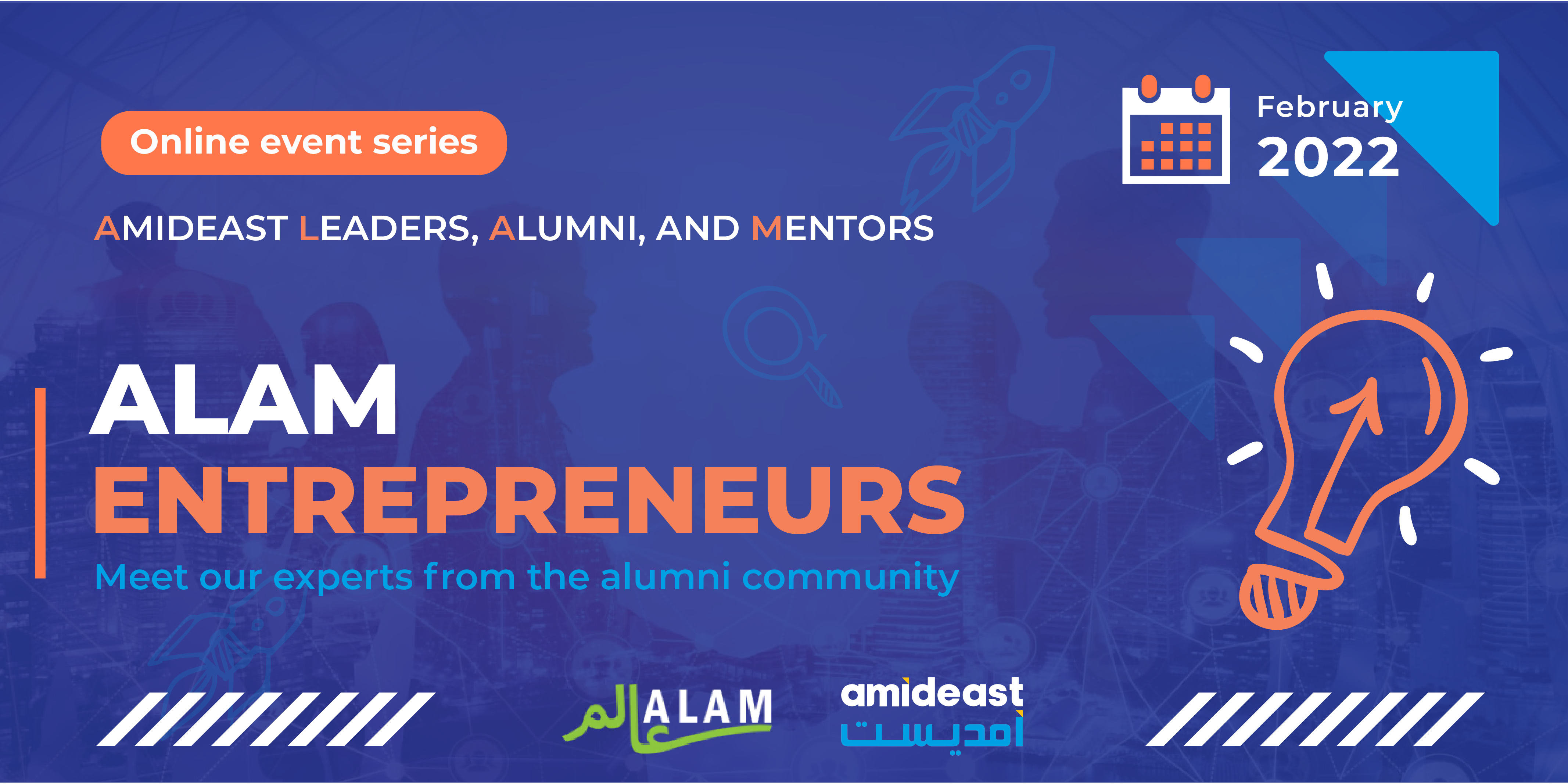
Throughout the month of February, the Amideast Leaders, Alumni, and Mentors (ALAM) network presented an online event series on entrepreneurship! Two YES alumnae from West Bank, Neda DeLuca and Dalia Najjar, participated as guest speakers to discuss their entrepreneurial experiences.
Neda DeLuca: “Tips for Becoming an Entrepreneur”
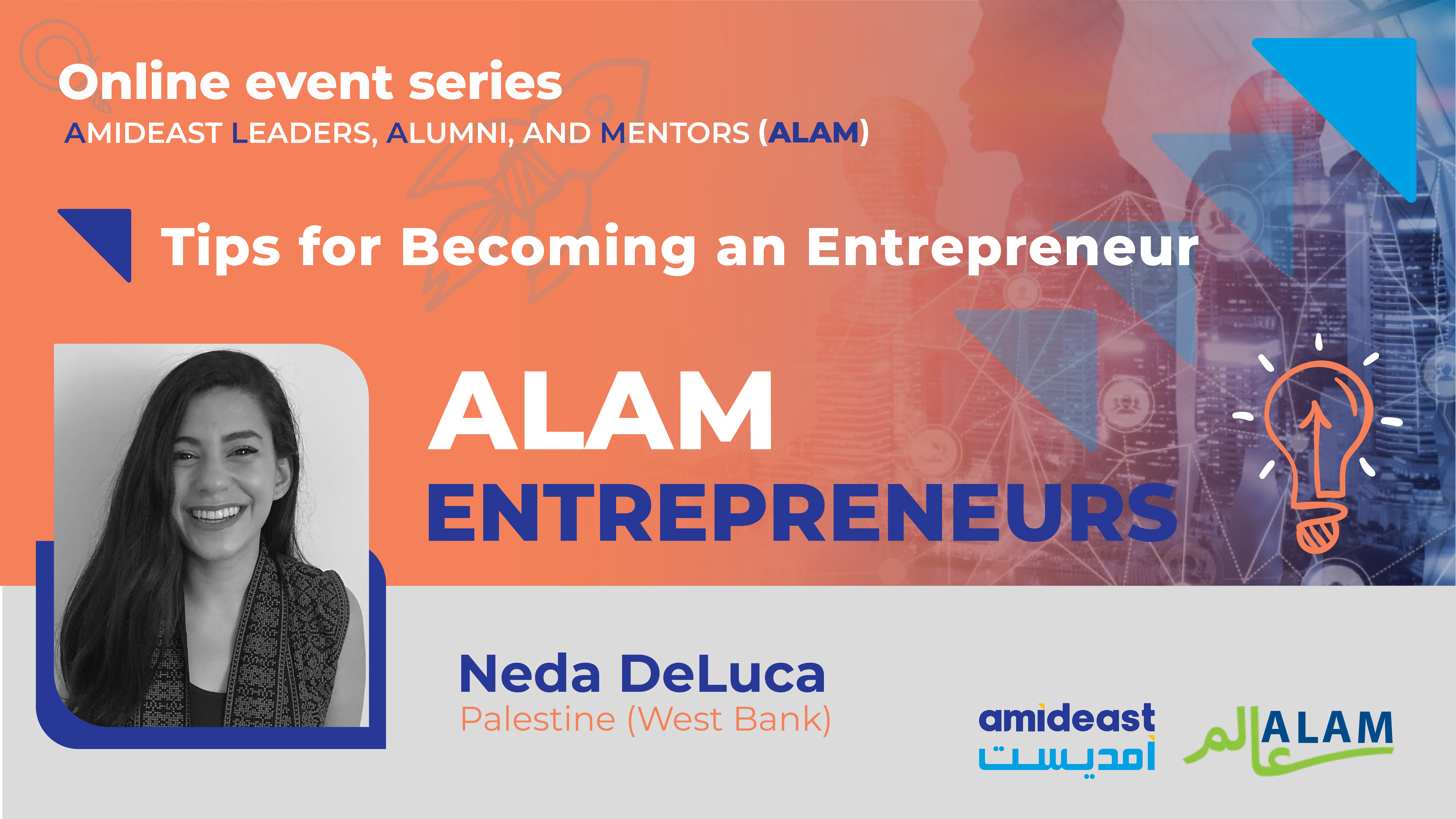
On February 2, YES alumna Neda DeLuca led the first presentation, "Tips for Becoming an Entrepreneur", to share how she started her small business, PalestinianMadeUS. Neda grew up in the Al-Amari Refugee Camp located close to Ramallah. She later attended Mount Holyoke College in 2011 where she was inspired to start an entrepreneurial endeavor to benefit Palestinian refugees. During her presentation Neda explained, “Before I went to Mount Holyoke College, one of my biggest personal goals was to start a business for Palestinians—more specifically Palestinian refugees. I think even more specifically for women, just because I grew up in a refugee camp and I’ve seen how hard Palestinian women work and how hard their lives are and what they go through every day. I’ve always been amazed by the art and beauty inside Palestinian women. I feel they were truly unseen, so I wanted to start a business that’s dedicated to them.” With this idea in mind, Neda went on to fulfill her dreams in July 2020, launching PalestinianMadeUS, which partners with refugee artisans in Palestine to bring fashionable embroidered and metal-crafted accessories for resale in the United States via an online Etsy shop.
Neda elaborated on the vision for her small business, “The idea is we partner with Palestinian women in refugee camps who hand make jewelry, shawls, accessories and we bring their goods to the United States for resale.” She continued, “So far, it has been a beautiful and very rewarding journey for me to be able to bring something that a Palestinian woman made with so much love and effort to the United States and put it in the hands of an average American who maybe has never heard of Palestine.” After sharing how Neda began PalestinianMadeUS, she offered the participants some tips on how to start a business as an entrepreneur.
Neda shared, “I think the most important part is picking an idea that is near and dear to your heart— something that you are passionate about.” She included some other experiences that have shaped her business model, “You have to be able to adjust your business to meet the needs of what people want.” Neda explained that since she started her business during the COVID-19 pandemic, she had the idea to sell masks featuring traditional Palestinian textiles. Neda noted that these are one of the most popular items sold in her Etsy shop. Neda said, “I started this business during COVID-19 so very quickly I saw that people were interested in face masks. So, I talked to an artist in Ramallah, and I asked her to make four or five masks. We sold those masks and then I started working with a small shop in Hebron that employs Palestinian employees, so they started making masks for my business. We tested a few styles and those sold, and so we ordered more. I think it’s very important to know your market and understand their preferences.” Neda concluded her presentation with her final piece of advice, “My last tip is to trust your gut.” She went on to share how she has overcome doubts about her business and started to pursue goals with confidence.
Dalia Najjar: “Social Enterprise”
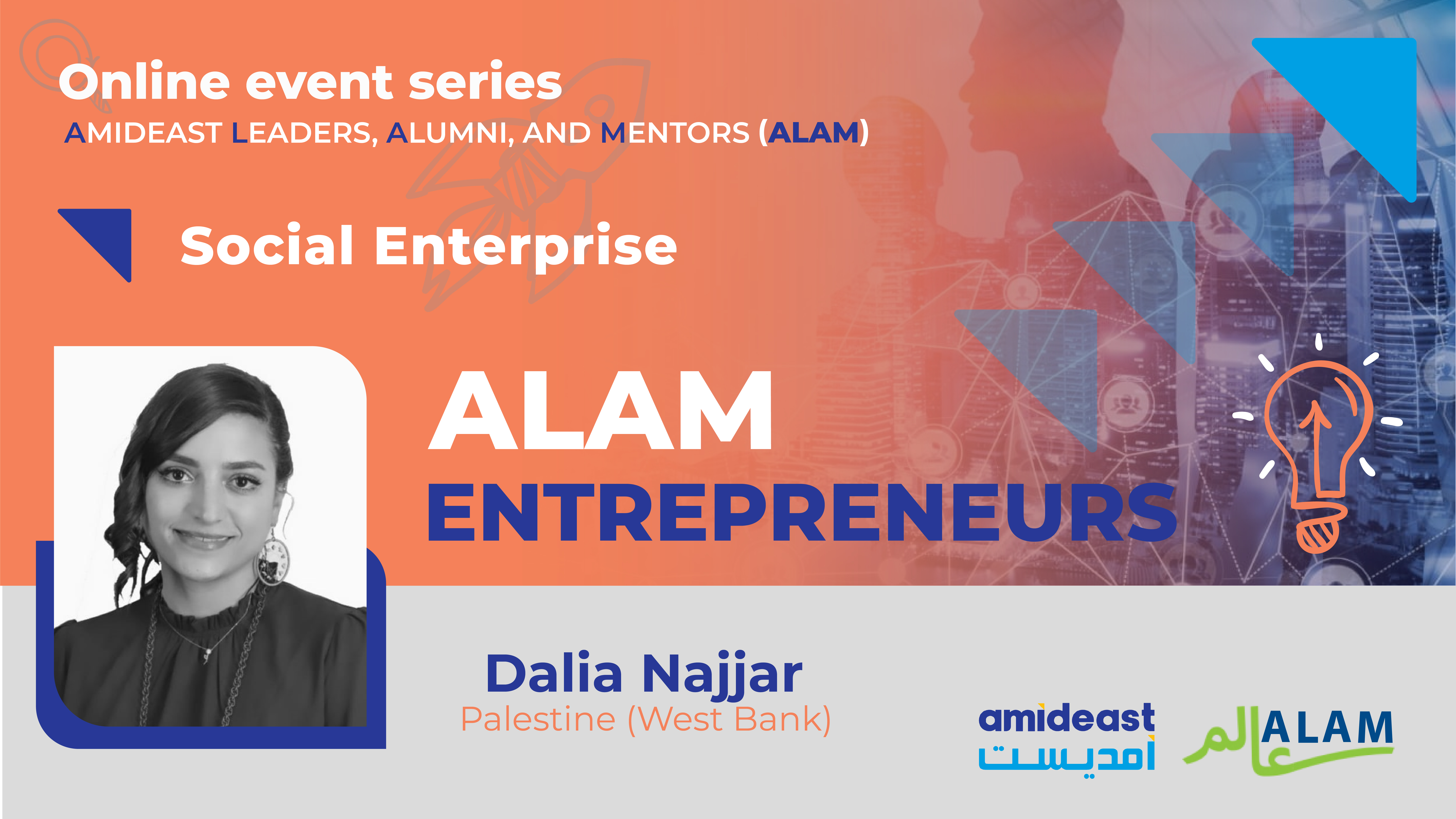
On February 16, YES alumna Dalia Najjar gave her presentation on social enterprise. Dalia works as an adjunct faculty member at Al-Quds Bard College teaching about social entrepreneurship. She is also developing a full curriculum in Social Entrepreneurship and Innovation. During her presentation, Dalia defined social enterprise as, “An approach by which individuals, groups, startup companies, and entrepreneurs develop, fund, and implement solutions to social, cultural, and environmental issues.”
Dalia then gave steps for the participants to start their own social enterprise. Dalia began, “First and foremost, we start with the ideation process which includes the problem and solution.” As a framework for her presentation, Dalia used the example of how entrepreneur Blake Mycoskie started the renowned shoe company, TOMS, and highlighted how these steps were reflected in his own entrepreneurial journey. Dalia added, “In this first challenge, decide on what change you wish to see in this world, then learn who needs that change, and why they need it. Lastly, imagine what the world will look like once that change is made.” Dalia continued, “Now that you’ve decided on the problem you want to tackle, next you have to craft the problem statement to explain it in a compelling way. Add in who it impacts, how it impacts those people, and top it off with figures, facts, and statistics.” Dalia warned the audience to avoid falling into “confirmation bias” by identifying the solution before fully determining the problem. Dalia explained, “It would sound obvious, but you would be shocked by how many innovators and entrepreneurs begin with an idea for a solution without knowing what they wish to solve.” She adds, “Remember to fall in love with the problem and the people you are serving—not the solution itself.”
Dalia noted that the next step in creating a social enterprise is validation. She explained that for a solution to prove successful, it needs validation or buy-in from relevant stakeholders. This stage also involves creating a prototype with a market strategy and examining the target market’s reaction to the product or service rendered. Finally, Dalia shared methods about pitching their project to potential investors and support. She concluded, “Remember that you can be another Mykoski and start your social enterprise to make the world a better place.”
The Series Finale
On February 25, the online series concluded with a finale where all the guest speakers came together online to answer audience questions. When asked about what advice the guest speakers would give to those who don’t know their passion but are also interested in starting an entrepreneurial endeavor, both Dalia and Neda responded. Neda said, “Passions come and go in life. I don’t think there is harm in exploring something new.” Dalia advised the participants to reframe their thought process, “Instead of trying to find what you’re passionate about, think about what bothers you. What frustrates you? What problems do I want to change? Then, you might discover your passion.”
We are so proud of these two YES alumnae for sharing their projects to change the world!
Dalia Najjar (YES 2007–2008, West Bank, placed by Ayusa in Greeley, CO)
Neda DeLuca (YES 2009–2010, West Bank, placed by Aspect in Calera, AL)


